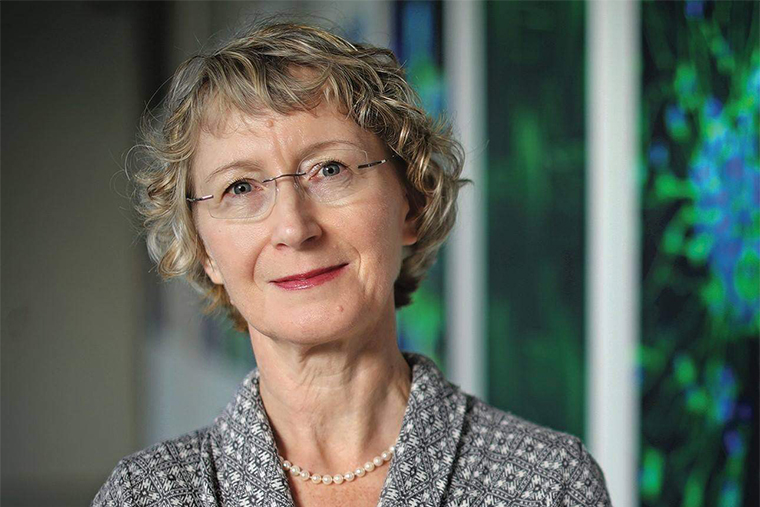Lilianna Solnica-Krezel
Alan A. and Edith L. Wolff Distinguished Professor of Developmental Biology

Alan A. and Edith L. Wolff Distinguished Professor of Developmental Biology
Lilianna “Lila” Solnica-Krezel came to Washington University School of Medicine in 2010 as head of the Department of Developmental Biology—the first woman to hold a department head position in the School of Medicine. In 2014, she also became the first woman to be named an Alan A. and Edith L. Wolff Distinguished Professor.
Solnica-Krezel is a globally known leader in the field of developmental biology with a focus on understanding the earliest stages of embryonic development. She studies gastrulation—a process by which an embryo transitions from a single layer of cells into a 3D structure with multiple layers that give rise to the various types of cells that make up the body.
Because gastrulation happens quickly after an egg is fertilized, it is challenging to study in people and other mammals. Solnica-Krezel works with zebrafish as a model organism for her research, because their embryos are transparent and develop outside the body, making them ideal for observation.
Her lab also conducts studies of human pluripotent stem cell lines to see if the details of the gastrulation process in zebrafish are relevant in human diseases and development. Her research has shed light on the origins of miscarriage, premature birth, cancer, and other genetic disorders.
Solnica-Krezel co-led efforts to found the university’s Center for Regenerative Medicine, which cultivates collaboration among diverse researchers studying the biology of stem cells, cell and tissue engineering, developmental biology, and aging. She also spearheaded construction of the School of Medicine’s state-of-the-art zebrafish facility, which has expanded the number of labs with access to zebrafish and fostered a vibrant zebrafish research community.
According to Solnica-Krezel, professorships recognize faculty members’ scientific excellence and their contributions to the university’s educational research mission. Their prestige, as well as the funding they provide for salary and professional development, help fuel scientific exploration and discovery.
“Whenever our financial resources increase, our freedom of thinking increases,” she said. “We take more risks, which ultimately expands the boundaries of our understanding.”
It is a particularly special honor to be the first woman to receive a Wolff professorship.
Lilianna “Lila” Solnica-Krezel, PhD